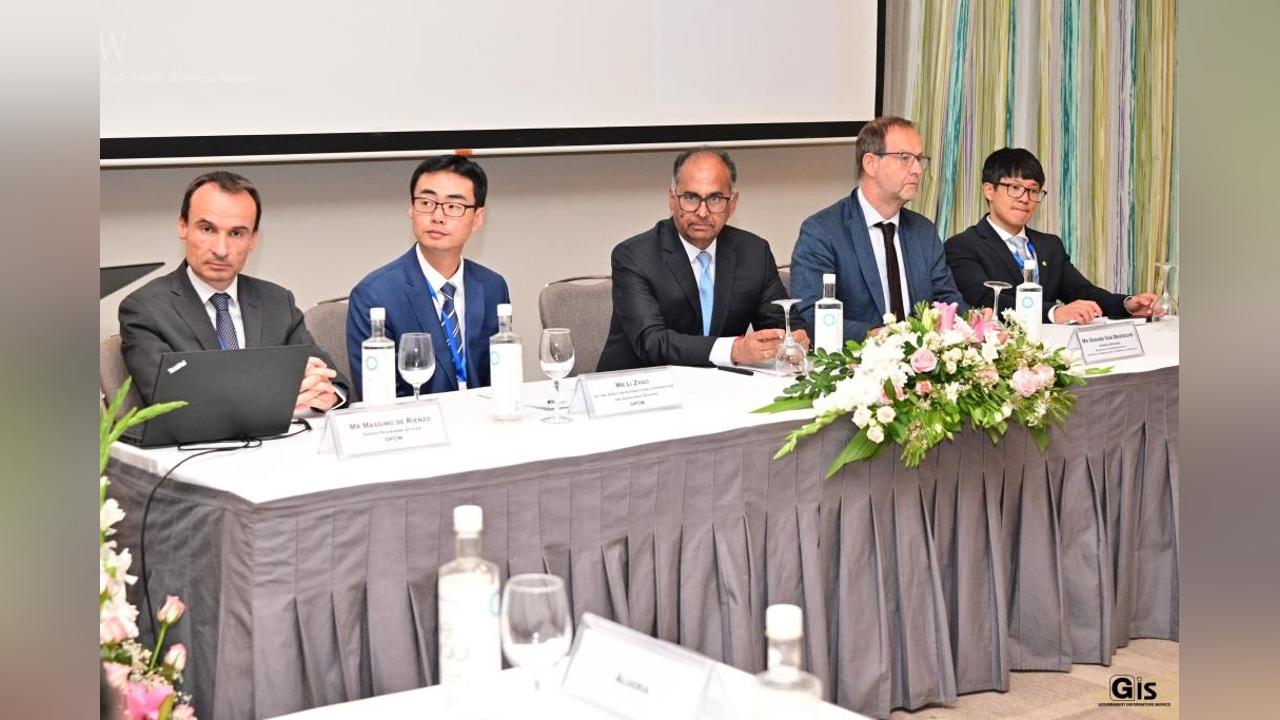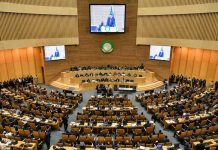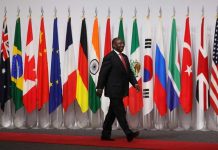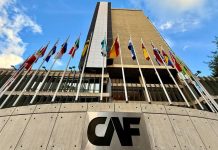Africa-Press – Mauritius. A three-day seminar on Chemical Weapons Convention and Chemical Safety and Security Management and a four-day Executive Programme on Integrated Chemicals Management, opened, today at the Hennessy Park Hotel, Ebène, in the presence of the Minister of Land Transport and Light Rail, Minister of Foreign Affairs, Regional Integration and International Trade, Mr Alan Ganoo.
The Acting Director, International Cooperation and Assistance Division of the Organisation for the Prohibition of Chemical Weapons (OPCW), Mr Li Zhao, and the Chargé d’Affaires of the European Union, Mr Gerard Van Driessche, were also present.
Some 41 participants, comprising 31 foreign delegates and 10 local participants from Government agencies, chemical industries, academia and relevant experts, are attending the events. Both events fall under the OPCW Integrated Chemical Management Programme.
This programme was launched in 2009 as part of the activities for promoting the peaceful uses of chemistry and enhancing economic and technological development and has since become a leading forum for promoting international cooperation and exchange of best practices in the field, while providing training opportunities to Member States over a range of specialised topics.
In his address, Minister Ganoo recalled that Mauritius, which shares the global commitment to a safer world, has contributed to the endeavour of ridding the world of chemical weapons and deter their use by anyone, anywhere, and under any circumstances.
He added that in pursuance of this commitment, Mauritius signed the Chemical Weapons Convention in January 1993 and deposited its instrument of ratification in February 1993, thus becoming the first country in Africa to do so, and the second one in the world after Fiji.
Soon after the entry into force of the Convention in April 1997, Mauritius set up in July 1997 its National Authority under the purview of the Prime Minister’s Office, he stated.
He spoke of the availability of new technologies and techniques as well as the potential acquisition of toxic chemicals which may allow a pursuit of clandestine programmes, particularly by nefarious non-state actors, thereby violating or weakening the regimes of prohibitions against chemical weapons and warfare.
Hence the need, he emphasised, for governments and institutions to take into account an increasingly wide range of areas of accelerated pace of technological change which could impact the development, characteristics, use, detection and response, to chemical weapons.
According to him, Member States should adopt, through the OPCW, a holistic approach to the emerging issues in the development and use of chemical weapons systems, chemical terrorism and abandoned chemical weapons.
The overarching goal, therefore, must be to prevent chemical substances from being unlawfully diverted to cause harm to people, infrastructure and the environment at every stage of the process: research, development, production, commercialisation and transportation, storage and use, he said.
Acknowledging that the world is witnessing shifts on the global threat landscape which can undermine control systems of chemical materials and weapons, Minister Ganoo underlined the importance of capacity building for the implementation of the Chemical Weapons Convention the regional and international levels.
Speaking about the OPWC’s security and disarmament objectives, he highlighted that it has attained near universality adding that over 99% of all declared chemical weapon stockpiles have been destroyed under OPCW verification.
He also recalled that the OPCW was awarded the Nobel Peace Prize in 2013. Furthermore, Minister Ganoo stated that Mauritius is contributing to promote the works of the OPCW. He recalled that small island states like Mauritius are extremely vulnerable to any chemical attacks by external forces.
“That is why we are determined to uphold the prohibition on the use of chemical weapons and to reaffirm that any use of chemical weapons by anyone, anywhere, under any circumstances is reprehensible and unacceptable and contravenes international standards and norms against such use”, he said.
As for Mr Li Zhao, he dwelt on the vision of the OPCW which is to implement the provisions of the Chemical Weapons Convention to achieve a world free of chemical weapons and the threat of their use, and in which chemistry is used for peace, progress, and prosperity.
He said that the OPWC proposes policies for the implementation of the Chemical Weapons Convention to the Member States of the OPCW, and develops and delivers programmes with and for them.
The ultimate aim of the OPCW, he stated, is to achieve a world permanently free of chemical weapons and to contribute to international security and stability, general and complete disarmament, and global economic development.
The Executive Programme aims at helping Member States develop in-depth knowledge and leadership skills in integrated chemicals management with a focus on chemical safety, security, and sustainability.
As for the Chemical Safety and Security Management Programme, it aims to promote chemical safety and security by providing tools and knowledge to mitigate the risks arising from chemical accidents and potential misuse of toxic chemicals, including the threat of terrorism. This programme aims to ensure that chemicals are only used for peaceful purposes throughout their lifecycle.
For More News And Analysis About Mauritius Follow Africa-Press







